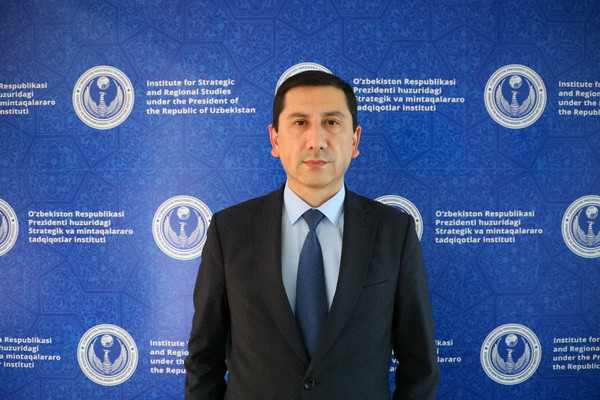
Interregional interconnectedness of Central Asia and the EU opens up new prospects for cooperation
Tashkent, Uzbekistan (UzDaily.com) -- An important political event of recent days - Summit "Central Asia - European Union" has been held on 27 October 2022 in Astana. I would like to note that this is the first time the forum has been held in such a format and, of course, this will bring cooperation between the EU and the Central Asian countries to a qualitatively new level, give impetus to further comprehensive interaction between our regions.
Undoubtedly, the emerging trend of intensifying the dialogue between the EU and Central Asia indicates the interest of Brussels in the stable and sustainable development of the Central Asian region, where, thanks to the established atmosphere of good neighborliness and mutual trust, political and economic cooperation and interconnectedness are strengthening, which, in turn, increases the role and importance of the region in system of international relations.
Moreover, today, taking into account the breakthrough results achieved in strengthening multifaceted and mutually beneficial cooperation in Central Asia, our region is beginning to occupy a special place on the EU foreign policy agenda in terms of its ability to contribute to ensuring security in the vast Eurasian space.
Without a doubt, the measures taken by Uzbekistan to resolve the situation in Afghanistan as soon as possible and comprehensively promote this process within the framework of international efforts are of great interest to Brussels. It is important to note here that high representatives from the EU actively participated in the international conferences on Afghanistan that took place in Uzbekistan in 2018 and 2022, during which the European participants outlined the importance of joint actions in strengthening peace, stability and economic recovery of the Afghan state in the interests of all the people .
In addition, in the context of the growing dynamics of trade, economic and industrial cooperation in the Central Asian region, a large Central Asian market opens up for the EU with new opportunities for cooperation in the fields of economy, trade, investment, industrial cooperation, energy, agriculture, transport, ICT, tourism, including with the use of digital, "green" and "smart" technologies.
This is confirmed by the first European Union-Central Asia Economic Forum held in Bishkek in November 2021, during which priority areas for cooperation between the EU and the region in the field of a green economy, digitalization and creating a favorable business climate were discussed.
In this context, it is necessary to emphasize the initiative put forward during this summit by the President of the Republic of Uzbekistan Shavkat Mirziyoyev to create a committee on economic cooperation "European Union - Central Asia" at the level of deputy prime ministers, which will become an important mechanism for ensuring the implementation of the agreements reached in the economic sphere.
In turn, the proposal of the head of Uzbekistan to implement, within the framework of the Erasmus + and Horizon Europe programs, the Project on the introduction of advanced European education methods, organize joint fundamental and applied research in the future, helps to increase the potential for innovation transfer, stimulate digitalization, and develop cloud technologies and artificial intelligence.
Also of high interest to the EU is the course taken by the Central Asian countries towards the development of interregional interconnectedness with South Asia. It is precisely in view of the fact that the region is striving to become an important link in the global production and logistics chain and the center of transport and communication connectivity between Asia and Europe that Brussels is forming a dynamic agenda to build up interregional relations.
In this vein, it should be noted that Uzbekistan has managed to do significant work in this direction in a short time. In particular, in 2021, during a high-level conference in Tashkent, a broad dialogue was launched between the countries of Central and South Asia. An important role in this was played by the unanimous approval by the UN General Assembly of a special resolution on strengthening interconnectedness between these regions, initiated by Uzbekistan (on 11 July 2022).
A significant impetus to the process of connectivity will be given by the upcoming November ministerial meeting in the format "Central Asia - European Union" in Samarkand and the first international conference "EU-CA" on interconnectedness: "Global gateway" for sustainable development". As a result of the forum, it is planned to develop a joint "road map" with specific, practical steps and activities.
Undoubtedly, the combination of all the above aspects will contribute to the further intensification of cooperation between the CA regions and the EU, to bring together their general economic interests.
In conclusion, I would like to say that the Central Asia-European Union summit that took place demonstrated the recognition and support of the EU for the joint efforts made by the Central Asian countries to develop the potential of the region, aimed at ensuring stability and sustainable development, building up multifaceted and mutually beneficial interregional cooperation.
Murad Uzakov,
Head of the ISMI Department under the President of the Republic of Uzbekistan